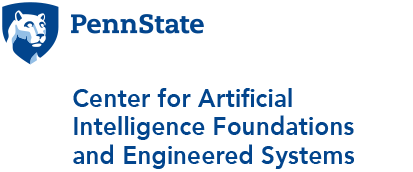Hui Yang
AI-Related Expertise Topics
Sensor-based modeling and analysis of complex systems for process monitoring/control, system diagnostics/prognostics, quality improvement, and performance optimization, with special focus on nonlinear stochastic dynamics, and the resulting chaotic, recurrence, multifractal, self-organizing, long-range dependence behaviors:
- Sensing systems, data analytics, and artificial intelligence
- Network science, nonlinear dynamics, and chaos
- Computer simulation, system dynamics, and optimization
- Quality engineering and applied statistics
- Smart manufacturing and industry 4.0
- Smart health, healthcare informatics, signal processing
Biography
Dr. Hui Yang is a Professor of Industrial and Manufacturing Engineering, Bioengineering at Penn State, and is affiliated with Penn State Cancer Institute (PSCI), Clinical and Translational Science Institute (CTSI), Institute for Computational and Data Sciences (ICDS), CIMP-3D. Currently, he serves as the PI and site director of NSF Center for Health Organization Transformation (CHOT). Dr. Yang was the president (2017-2018) of IISE Data Analytics and Information Systems Society, the president (2015-2016) of INFORMS Quality, Statistics and Reliability (QSR) society, and the program chair of 2016 IISE Annual Conference. He is also an associate editor for IISE Transactions, IISE Transactions Healthcare Systems Engineering, IEEE Journal of Biomedical and Health Informatics (JBHI), IEEE Transactions on Automation Science and Engineering (TASE), IEEE Robotics and Automation Letters (RA-L), Quality Technology & Quantitative Management, and an Associate Editor for the Proceedings of IEEE CASE, IEEE EMBC, and IEEE BHI.
Externally Funded AI Projects
- 2020~2021, PI, Manufacturing PA, Image-guided quality control for low-volume and high-mix manufacturing.
- 2020~2021, Co-PI, DOE CESMII, Self-powered sensing and data science for smart manufacturing (with Dr. Soundar Kumara and Dr. Vijay Narayanan).
- 2020~2021, PI, NSF IIP-2026875, RAPID: Developing Advanced Modeling and Analysis Tools to track Human Movement Patterns and Coronavirus / Infectious Disease Spread Dynamics in Geographical Networks (with Dr. Christopher DeFlitch and Dr. Yunfeng Shi).
- 2019~2023, PI, NSF MCB-1856132, Collaborative Research: Data-driven integration of biological with in-silico experiments to determine mechanistic effects of N-glycosylation on cellular electromechanical functions (with Dr. Eric Bennett – Wright State University)
- 2019~2021, PI, NIST, Additive Manufacturing Analytics and Sensing using Intelligent kNowledge Graphs (AMASING), (with Dr. Soundar Kumara and Dr. Timothy Simpson).
- 2018~2021, Co-PI, NSF EEC-1830741, Research Initiation: Advanced Modeling of Metacognitive Problem Solving and Group Effectiveness in Collaborative Engineering Teams (with Dr. Faisal Aqlan).
- 2016~2021, PI, NSF IIP-1624727, Phase II I/UCRC Pennsylvania State University Site: Center for Health Organization Transformation.
- 2019~2021, PI, Susan G Komen Foundation, Optimizing Cancer Treatment with Survival Analysis and Deep Learning
- 2015~2021, PI, NSF CMMI-1617148, CAREER: Sensor-based Modeling and Control of Nonlinear Dynamics in Complex Systems for Quality Improvements in Manufacturing and Healthcare.
AI-related Courses
- IE 597: System Informatics and Control
- IE 516: Applied Stochastic Processes
- IE 330: Engineering Analytics
- IE 323: Statistical Methods in Industrial Engineers
- EGN 3443: Probability and Statistics for Engineers
- ESI 6247: Statistical Design Models
- ESI 5236: Reliability Engineering
- ESI 4221: Industrial Statistics and Quality Control
- ESI 6934: Advanced Analytics I
Publications
For research software, please click the Software Toolbox Link.

Hui Yang
Professor of Industrial and Manufacturing Engineering and Biomedical Engineering


